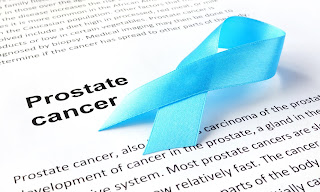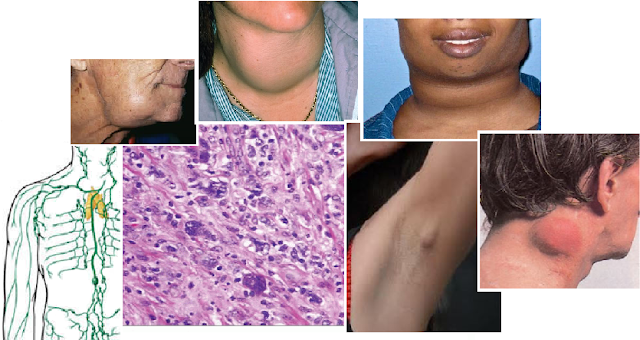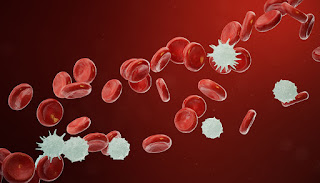Five Myth and Misunderstanding About Prostate Cancer
Myth and misunderstanding
Get some information about prostate malignant growth and on the off chance that they don't unexpectedly change the subject to " the climate," or "that game the previous evening," odds are you'll hear a wide assortment of thoughts on screening and treatment.Despite the fact that we've gone through the previous 25 years recognizing in excess of 29 sorts of prostate malignant growth and supported examination that has prompted more accuracy, the reality remains that prostate disease is one of the least discussed tumors. This can prompt a lot of disarrays. Along these lines, we should investigate a portion of those legends and confusions about prostate malignancy, a malady that is the subsequent driving reason for disease passing among men in India
Myth #1: Prostate malignancy is an elderly person's sickness
There are many hazard components to consider. Your race, family ancestry, physical wellbeing, and way of life—even geographic area—are for the most part factors that can improve your probability of creating prostate malignancy.
What's more, it's actual: the more established you are, the almost certain you are to be determined to have prostate malignant growth. While 65% of the 165,000 cases are analyzed in men who are 65 or more seasoned, the reality remains that 35% of those analyzed, or in excess of 57,000 every year, are analyzed at a prior age. Roughly 1 of every 9 U.S. men, in general, will be determined to have prostate malignancy. To get more about it consult the Best oncologist in Delhi with these details.
Myth #2: On the off chance that you don't have any side effects, you don't have prostate malignant growth
WRONG. Prostate malignant growth is one of the most asymptomatic diseases in oncology, which implies that not all men experience side effects and commonly these side effects can be mixed up or credited to something different. Regularly, indications of prostate cancer are first identified by a specialist during a standard registration. Normal side effects include a need to pee every now and again, trouble beginning or halting pee, frail or intruded on the stream of pee, agonizing or consuming pee, trouble having an erection, excruciating discharge, blood in the pee or semen, or regular agony and firmness in the lower back, hips or upper thighs. Urinary manifestations don't really mean prostate disease. On the off chance that you experience any of these manifestations, make certain to tell your PCP. For more data on manifestations, see our indications page. Best cancer specialist doctor in Delhi.
Myth #3: Prostate malignancy is a moderate developing disease I don't have to stress over
Indeed. What's more, no. With the 29 kinds of prostate malignancy found by PCF-upheld specialists, we can affirm that there are those prostate tumors a man may kick the bucket with and not of, while others are forceful. When a biopsy affirms the nearness of malignancy in the prostate, a doctor utilizes the information contained in the pathologist's report to describe the likely forcefulness of the disease and make proposals for treatment depends on numerous variables, including a patient's age and wellbeing status. There are numerous medicines accessible for patients and one methodology doesn't fit all cases. Patients need to comprehend the intricacy of this illness and settle on treatment choices that are directly for them in the conference with a confided in a clinical expert.
Fortunately, on account of a transformation in accuracy medication like immunotherapy, we have found medicines that will empower specialists to fix more and over-treat less. For additional particulars on prostate disease accuracy diagnostics, Best Cancer Specialist Doctor in Delhi
Myth #4: Prostate malignant growth doesn't run in my family, so the chances aren't extraordinary that I will get it
Wrong. While a family ancestry of prostate malignant growth raises a man's chances of being analyzed to 1 of every 3, the reality remains that 1 out of each 9 Indian men will be determined to have the prostate disease in the course of their life. This analyzes to 1 of every 8 ladies who will be determined to have bosom malignant growth. Furthermore, Urben men are 74% bound to be determined to have prostate malignant growth and 2.4 occasions bound to bite the dust subsequently.
Family ancestry and hereditary qualities do, nonetheless, assume a job in a man's odds for creating prostate malignant growth. A man whose father or sibling had prostate malignant growth is twice as prone to build up the infection. The hazard is additionally expanded if the malignant growth was analyzed in a relative at a more youthful age (under 55 years of age), or on the off chance that it influenced at least three relatives.
In 2017, roughly 161,000 new cases were analyzed in India. Best Cancer Specialist Doctor in Delhi
Myth #5: The PSA test is a malignancy test
Wrong. The PSA test estimates levels of prostate-explicit antigen in the prostate, not disease. PSA is delivered by the prostate in light of various issues that could be available in the prostate including an aggravation or disease (prostatitis), broadening of the Prostate Organ (Benevolent Prostatic Hyperplasia – BPH) or, conceivably, malignant growth. Consider it a first alarm smoke alert, rather than an alarm. The PSA test is the initial phase in the analytic procedure for malignant growth. It has made the discovery of the disease in its beginning phases when it is best rewarded, conceivable. Moreover, PCF-financed research has recognized qualities, that when present, essentially increment chance for prostate malignant growth. These qualities might be passed on and expanding hazard for children AND girls also. Perceive how our examination is prompting more accurate medication.
Above we imparted to you five facts and misguided judgments about prostate malignancy. Now, we need to impart to you five Increasingly prostate malignant growth legends and misinterpretations and where you can discover more data to assist you with understanding prostate disease.
Myth #6: A high PSA level implies that you have prostate malignant growth and a low PSA implies you don't have prostate disease
PSA or Prostate Explicit Androgen is a protein delivered by the prostate organ. When there is an issue with the prostate, more PSA is discharged in the body, and a PSA test is utilized to recognize PSA levels in the circulation system. Albeit prostate malignancy is a typical reason for raised PSA levels, it's by all account not the only purpose. Raised levels can be a sign of other ailments, for example, BPH (kindhearted prostatic hyperplasia – expanded prostate) or prostatitis (a disease in the prostate). Alternately, a low PSA might be misleading; for instance, PSA can likewise be weakened in men who are overweight or stout, because of a bigger blood volume, and a biopsy ought to be considered at a moderately lower number (for example 3.5 rather than 4). Hence, PSA speed over various PSA tests is regularly utilized as an increasingly exact measure. For more data on PSA, speed, and PSA tests.
Myth #7: Vasectomies cause prostate malignant growth
Having a vasectomy was once thought to build a man's hazard. This issue has since been deliberately explored by disease transmission experts and it has been resolved that a vasectomy HAS NOT BEEN Connected to expanding a man's possibility of getting prostate malignant growth. Be that as it may, it has prompted the prostate being checked by a urologist all the more frequently and thusly prostate malignancy being recognized in the facility. While we don't really know the specific reasons for each man's prostate malignant growth, there are numerous protection estimates you can take to stack the chances.
Myth #8: You can't have an infant after prostate malignant growth
Regenerative issues are a significant worry for men who have prostate malignant growth, since
the prostate is fundamental for proliferation by delivering prostatic liquid, which
feeds and ensures the sperm. Prostate malignant growth medical procedure, if it's the best possible course for your consideration, will expel the prostate organ. Chemo and radiation treatment could likewise cause fruitlessness dependent on certain components, including age, drugs, and the dosages utilized.
The absolute best approach to ensure you can begin or extend your family after treatment is to have some sperm solidified early. For more data on fruitlessness and prostate disease, look at our site for issues to consider.
Myth #9: Sexual movement builds the danger of creating prostate disease
Significant levels of sexual movement or successive discharge were once reputed to build prostate malignant growth hazards. Truth be told, a few investigations show that men who revealed increasingly visit discharges had a lower danger of creating prostate malignant growth. The discharge itself has not been connected to prostate malignancy. Snap here for the full rundown of hazard factors.
Myth#10: Medical procedure and radiation are the most ideal approach to treat prostate malignancy
The prostate disease comes in numerous structures – some are forceful, some are moderate developing, so there are alternatives to prompt medical procedure and radiation treatments, and will incorporate numerous elements, including the requirement for treatment, family hereditary qualities, individual conditions, level of a hazard:
• Dynamic Reconnaissance: Men with "okay" tumors (which are the most widely recognized sort), can securely experience something many refer to as "Dynamic Observation," where they are checked without quick treatment while protecting their progressions at long haul endurance.
What men can do about prostate malignant growth
The initial phase in managing prostate malignant growth is knowing the realities and dispensing with disarray. Ongoing examinations have indicated that way of life choices, for example, keeping up a sound eating regimen and normal exercise, for example, strolling 30 minutes per day, may likewise assume a critical job in diminishing the danger of getting prostate malignancy and enduring it on the off chance that you get the ailment. Converse with your loved ones about prostate disease and, on the off chance that you are more than 40, converse with your doctor to build up prostate wellbeing and Screening plan that is directly for you.






Comments
Post a Comment